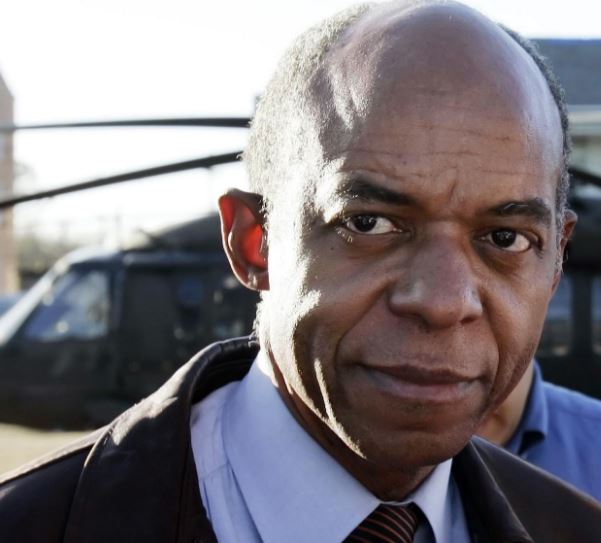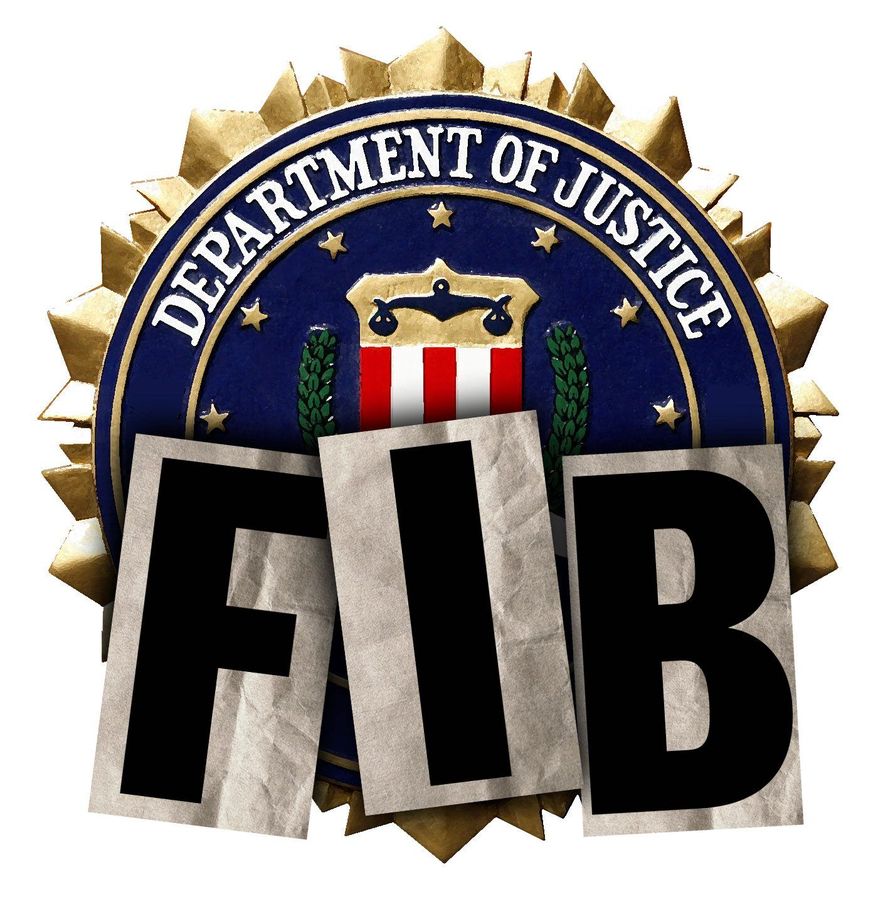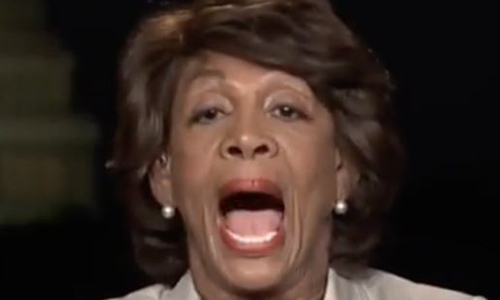 Senior US Judge T.S. Ellis III, Eastern District of Virginia.
Senior US Judge T.S. Ellis III, Eastern District of Virginia.
Has Robert Mueller reached his plateau?
Two rather surprising pieces of news emerged this past week regarding Special Counsel Robert Mueller and his team of Trump Fishing Expeditionists.
And, in case you failed to notice, Monday was the one year anniversary of the multi-million dollar special counsel appointment via the Mueller Fishing Company.
First, from FoxNews.com:
Federal judge accuses Mueller’s team of lying, trying to target Trump: ‘C’mon man!’
by Jake Gibson
A federal judge on Friday harshly rebuked Special Counsel Robert Mueller’s team during a hearing for ex-Trump campaign chairman Paul Manafort – suggesting they lied about the scope of the investigation, are seeking “unfettered power” and are more interested in bringing down the president.
If you thought that was glorious, like BTO, “you ain’t seen nothing yet.”
“You don’t really care about Mr. Manafort,” U.S. District Judge T.S. Ellis III told Mueller’s team. “You really care about what information Mr. Manafort can give you to lead you to Mr. Trump and an impeachment, or whatever.”
Who is US District Judge Thomas Selby Ellis III? He happens to be a 78-year-old Senior US Judge assigned to the Eastern District of Virginia. A Reagan appointee in 1987, he was born in Bogota, Colombia and graduated from Princeton with a BA in Engineering. He subsequently served in the US Navy as an aviator and took his JD magna cum laude from Harvard in 1969.
Judge Ellis has presided over cases such as the American Taliban, John Walker Lindh, espionage act cases, Khalid El-Masri, and now the Paul Manafort case. In three words, Ellis has “seen it all.”
Continuing:
Further, Ellis demanded to see the unredacted “scope memo,” a document outlining the scope of the special counsel’s Russia probe that congressional Republicans have also sought.
Which, by the way, Mueller’s team has roughly three more days to produce.
The hearing, where Manafort’s team fought to dismiss an 18-count indictment on tax and bank fraud-related charges, took a confrontational turn as it was revealed that at least some of the information in the investigation derived from an earlier Justice Department probe – in the U.S. attorney’s office for the Eastern District of Virginia.
Manafort’s attorneys argue the special counsel does not have the power to indict him on the charges they have brought – and seemed to find a sympathetic ear with Ellis.
Damn the judge for asking a particularly logical and pointed question.
The Reagan-appointed judge asked Mueller’s team where they got the authority to indict Manafort on alleged crimes dating as far back as 2005.
“We don’t want anyone with unfettered power,” he said.
He summed up the argument of the Special Counsel’s Office as, “We said this is what the investigation was about. But we’re not going to be bound by it, and we weren’t really telling the truth in that May 17 letter [appointing a special counsel].”
There is this article from TheFederalist.com about Robert Mueller.
Why Robert Mueller Is The Clown Prince Of Federal Law Enforcement
by John Dellaportas
As we enter the second year of Robert Mueller’s sprawling investigation, Hanlon’s Razor teaches us to ‘Never attribute to malice that which is adequately explained by stupidity.’
Other than the president himself, perhaps no public figure is more debated and discussed these days than Special Counsel Robert Mueller. On the Right, former Speaker Newt Gingrich has called him “the tip of the deep state spear aimed at destroying or at a minimum undermining and crippling the Trump presidency.” On the Left, best-selling author J.K. Rowling has tweeted: “If someone, somewhere, isn’t rushing Robert Mueller Christmas angels into production right now, I will be bitterly disappointed.”
Could both sides be off-base? As we enter the second year of Mueller’s sprawling investigation, with no apparent end in sight, Hanlon’s Razor teaches us to “Never attribute to malice that which is adequately explained by stupidity.” What if Mueller were not some sort of avenging angel, but rather just a bumbling bureaucrat? To put it somewhat differently, why assume that the same folks who brought us Amtrak, the U.S. Post Office, and Healthcare.gov somehow knocked it out of the park with the Office of Special Counsel?
OMG. I utterly failed to see that one coming.
Whatever else one might say about Washington DC, it has never been accused of being a meritocracy. Rather, it has always been a place where people trade on connections. Until President Obama came into town and shook things up a bit, for centuries our federal government was mostly overseen by a bipartisan old-guard of WASP privilege.
Hang on. The trip’s gonna get bouncy for a bit.
If anything, the story of Robert Swann Mueller III reads like a parody of that privilege. Born to a wealthy DuPont executive, Mueller was sent off to St. Paul’s, the elite New Hampshire boarding school (where he was John Kerry’s lacrosse captain), before matriculating at Princeton, New York University, and the University of Virginia. In 1966, he married Ann Cabell Standish, an alumnus of Miss Porter’s Finishing School in Farmington, Connecticut, and Sarah Lawrence College. (To his credit, Mueller did volunteer post-college with the Marines, and served bravely in Vietnam.)
Are you now wondering if there’s a proverbial time bomb in here somewhere? Wonder no more.
As Alan Dershowitz recalled on “The Cats Roundtable” podcast, Muller is “the guy who kept four innocent people in prison for many years in order to protect the cover of Whitey Bulger as an FBI informer. … And that’s regarded in Boston of one of the great scandals of modern judicial history. And Mueller was right at the center of it.”
Anyone also remember that, during that time, FBI agent John Connolly was providing information to Whitey Bulger? Bueller?
Mueller not the idyllic beacon of goodness, light and truth? Heaven forbid. Anyone recall this?
One week after the 9/11 attacks, letters with anthrax were mailed to various media outlets and the offices of two U.S. senators, killing five and infecting 17 others. Coming as soon as it did after 9/11, hysteria naturally ensued. This was Mueller’s first true test as FBI director. The results were not pretty. As Mollie Hemingway noted, Mueller “completely botch[ed] the anthrax killer case, wasting more than $100 million in taxpayer dollars, destroying the lives of multiple suspects, and chasing bad leads using bad methods.”
Want the “dirty little lies, the dirty little truth?” You’re going to get it.
To appreciate why the FBI so inept at catching terrorists during these years, one has to understand the transformative changes Mueller inflicted on the Bureau. In law enforcement, experience is key. One would expect it to be encouraged. But Mueller took the opposite tack, instituting a policy that required all FBI employees in any type of supervisory position for five years to either move to Washington to sit at a desk, or else leave the FBI.
The policy drew a stinging rebuke from the FBI Agents Association, which said the program hobbled local field offices by forcing out seasoned agents. The numbers bear that out. In the first nine months of 2007 alone, according to NPR, some “576 agents found themselves in the five-and-out pool. Less than half of them – just 286 – opted to go to headquarters; 150 decided to take a pay cut and a lesser job to stay put; 135 retired; and five resigned outright.” Overall, Mueller’s “Five and Out Policy” devastated the FBI ranks.
For surrounding himself with an army of “yes men,” however, Mueller’s personnel practices were a smashing success. It was so much so that at the end of his stint, Mueller managed to talk his way into a two-year extension to his original ten-year term.
Ah, the beauty of office politics. But wait; I thought Leftists, Demorats and the American Media Maggots insisted and continue to insist that all of our beloved Alphabet Agencies are completely unbiased and apolitical? Notice how I failed to throw “competent” in there?
I’ll leave you with this final bit. And please read the rest of Dellaportas’s article.
That is how Mueller came to still be in charge on April 15, 2013, when two homemade bombs detonated near the finish line of the Boston Marathon. Three persons (one an eight-year old boy) were killed and hundreds were injured. More than a dozen runners lost limbs.
Once again, a subsequent congressional investigation uncovered that Mueller’s FBI had been notified but did not act in time. In March 2011, the Russian intelligence agency FSB cabled the FBI, warning that the man who would become the lead bomber, a Chechen immigrant named Tamerlan Tsarnaev, was known to have associated with militant Islamists. The FBI investigated but quickly cleared him.
The FSB in September 2011 sent a second cable, this time to the CIA. Again, the FBI did not act. In 2012, Tsarnaev traveled to and spent six months in Dagestan, a terror-filled Russia region next to Chechnya. The FBI was alerted to his travels, but decided neither to detain nor question him.
Once again, Mueller did not apologize. Rather, he told Congress the agent who handled the matter “did an excellent job in investigating, utilizing the tools that are available to him in that kind of investigation. … As a result of this, I would say, thorough investigation, based on the leads we got from the Russians, we found no ties to terrorism.”
“We found no ties to terrorism.” That wasn’t Comey’s cock-up. It was Mueller’s. It’s as convincing as the Paris police saying, regarding the May 12th knife attack, that the “suspect’s motives were unclear.” Because, after all, nothing indicates a lack of clarity like the phrase “Allahu Akbar.”
Then there was this little bit of frippery from Monday’s TheHill.com:
Mueller may have a conflict — and it leads directly to a Russian oligarch
by John Solomon
Special counsel Robert Mueller has withstood relentless political attacks, many distorting his record of distinguished government service.
But there’s one episode even Mueller’s former law enforcement comrades — and independent ethicists — acknowledge raises legitimate legal issues and a possible conflict of interest in his overseeing the Russia election probe.
In 2009, when Mueller ran the FBI, the bureau asked Russian oligarch Oleg Deripaska to spend millions of his own dollars funding an FBI-supervised operation to rescue a retired FBI agent, Robert Levinson, captured in Iran while working for the CIA in 2007.
Now hold up on that thar car wash, cowboy. Is it being said that — gulp — Mueller may have a Russian Collusion Connection instead of Donald John Trump, the guy with the dead orange cat on his head?
Yes, that’s the same Deripaska who has surfaced in Mueller’s current investigation and who was recently sanctioned by the Trump administration.
Helping him then, hurting him now? Just a wee bit of smegmatized Mark I Model I Conflict of Interest? Hell-ewww? But hang onto your girdle. It gets better.
One agent who helped court Deripaska was Andrew McCabe, the recently fired FBI deputy director who played a seminal role starting the Trump-Russia case, multiple sources confirmed.
So why should anyone care about Oleg Deripaska?
Two reasons.
First, as the FBI prepared to get authority to surveil figures on Trump’s campaign team, did it disclose to the Foreign Intelligence Surveillance Court that one of its past Russian sources waived them off the notion of Trump-Russia collusion?
Second, the U.S. government in April imposed sanctions on Deripaska, one of several prominent Russians targeted to punish Vladimir Putin — using the same sort of allegations that State used from 2006 to 2009. Yet, between those two episodes, Deripaska seemed good enough for the FBI to ask him to fund that multimillion-dollar rescue mission. And to seek his help on a sensitive political investigation. And to allow him into the country eight times.
As Scooby-Doo says: “Ruh-roh.”
Harvard law professor Alan Dershowitz told me he believes Mueller has a conflict of interest because his FBI previously accepted financial help from a Russian that is, at the very least, a witness in the current probe.
“The real question becomes whether it was proper to leave [Deripaska] out of the Manafort indictment, and whether that omission was to avoid the kind of transparency that is really required by the law,” Dershowitz said.
Melanie Sloan, a former Clinton Justice Department lawyer and longtime ethics watchdog, told me a “far more significant issue” is whether the earlier FBI operation was even legal: “It’s possible the bureau’s arrangement with Mr. Deripaska violated the Antideficiency Act, which prohibits the government from accepting voluntary services.”
Too “inside baseball” for you? I should care to remind: we are a nation of laws.
George Washington University constitutional law professor Jonathan Turley agreed: “If the operation with Deripaska contravened federal law, this figure could be viewed as a potential embarrassment for Mueller. The question is whether he could implicate Mueller in an impropriety.”
Then, despite the best wishes of Leftists, Demorats and the American Media Maggots.
In the meantime, the episode highlights an oft-forgotten truism: The cat-and-mouse maneuvers between Moscow and Washington are often portrayed in black-and-white terms. But the truth is, the relationship is enveloped in many shades of gray.
Finally, again from TheHill.com:
How about a few questions for Robert Mueller?
by Mark Penn
Robert Mueller has plenty of questions for President Trump, and maybe he will get to ask them. Most of them seemed like perjury traps rather than real questions for the president and, surprisingly, they contain very little that wasn’t in the public domain though prior leaks. In other words, the president is not a target because they have nothing implicating him, and so they want to use the interview to create such material.
But the conduct of the investigation by the special counsel and his team has raised a lot of questions as to its foundation, conflicts of interest, fairness and methods. Most of the public, based on the last Harvard Caps-Harris Poll, supports Robert Mueller going forward with his investigation, but I wonder whether that would still be the case if he were required to answer a few questions himself.
Perjury trap? Oh yes. Every question aimed at Donald Trump will be a perjury trap. The Perjury Trap of perjury traps in modern history.
Just a few questions from Penn’s article.
- When you interviewed for FBI director with President Trump, had you had any conversations with Deputy Attorney General Rod Rosenstein, FBI Director James Comey or any other current or former officials of the U.S. government about serving as a special counsel? Didn’t you consider going forward with the interview or being rejected as FBI director to create the appearance of conflict?
- When you picked your team, what was going through your mind when you picked zero donors to the Trump campaign and hired many Democratic donors, supporters of the defiant actions of Sally Yates, who at the time was deputy attorney general, and prosecutors who had been overturned for misconduct? What were you thinking in building a team with documented biases?
- When you were shown the text messages of FBI officials Lisa Page and Peter Strzok, why did you reassign them and not fire them for compromising the investigation with obvious animus and multiple violations of procedure and policy? Why did you conceal from Congress the reasons for their firing for five months and did you discard any of their work as required by the “fruits of a poisonous tree” doctrine?
- What were your personal contacts with Rod Rosenstein and James Comey during the investigation as special counsel and before that as a private attorney? Would you be considered a friend of James Comey? Would that personal relationship not disqualify you as a prosecutor on the case under Justice Department guidelines?
- Doesn’t the fact that Rod Rosenstein wrote a memo urging the firing of James Comey and, therefore, is a witness to key events you are reviewing, disqualify him as your supervisor under Justice Department guidelines?
- Did you see in advance any of the text of the book by James Comey or have any conversations related to its contents? Are you reviewing the contradictory statements made by James Comey on key issues for possible perjury or referral for perjury?
You get my gist. You understand the thrust. There are many more questions.
Am I the only one that’s beginning to think this whole Special Council thingie kinda stinks?
BZ


 Oh wait; no you can’t.
Oh wait; no you can’t. Maxine Waters, the Demorat gift that keeps on giving.
Maxine Waters, the Demorat gift that keeps on giving. Let’s listen to Maxine Waters embarrass herself once more on the floor of the House following Mike Kelly.
Let’s listen to Maxine Waters embarrass herself once more on the floor of the House following Mike Kelly.